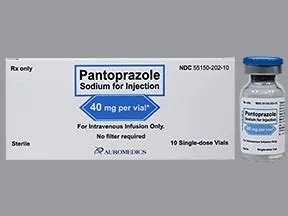Intro
Pantoprazole 20mg Tablet treats acid reflux, GERD, and stomach ulcers, reducing heartburn and inflammation with proton pump inhibitor benefits.
Pantoprazole 20mg tablets are a commonly prescribed medication for various gastrointestinal issues. The importance of understanding the uses, benefits, and potential side effects of this medication cannot be overstated, as it directly affects the quality of life for millions of people worldwide. Gastrointestinal problems, such as acid reflux and stomach ulcers, can significantly impact an individual's daily activities, sleep, and overall well-being. Therefore, it is crucial to explore the role of pantoprazole 20mg tablets in managing these conditions.
The prevalence of gastrointestinal disorders has led to an increased demand for effective treatments. Pantoprazole 20mg tablets have emerged as a popular choice among healthcare professionals due to their efficacy in reducing stomach acid production. By decreasing the amount of acid in the stomach, these tablets help alleviate symptoms associated with excessive acid production, such as heartburn, bloating, and stomach pain. This makes pantoprazole 20mg tablets an essential medication for individuals suffering from conditions like gastroesophageal reflux disease (GERD) and peptic ulcer disease.
The mechanism of action of pantoprazole 20mg tablets is based on their ability to inhibit the proton pump in the stomach lining. This proton pump is responsible for producing gastric acid, which is essential for digestion but can cause problems when produced in excess. By blocking this pump, pantoprazole reduces the amount of acid produced, thereby reducing the risk of acid-related damage to the esophagus and stomach. This understanding is vital for patients, as it helps them appreciate the importance of adherence to their prescribed medication regimen and the potential consequences of untreated gastrointestinal conditions.
Pantoprazole 20mg Tablet Mechanism of Action

The mechanism of action of pantoprazole 20mg tablets involves the inhibition of the H+/K+ ATPase (proton pump) in the gastric parietal cells. This inhibition is irreversible and lasts for the lifespan of the parietal cell, which is typically 3-5 days. As a result, the production of gastric acid is significantly reduced, providing relief from symptoms of acid-related disorders. Understanding this mechanism is crucial for healthcare providers, as it allows them to predict the onset and duration of action of pantoprazole and to adjust treatment plans accordingly.
Benefits of Pantoprazole 20mg Tablets
The benefits of pantoprazole 20mg tablets are numerous and well-documented. These benefits include: - Rapid relief from symptoms of acid reflux and peptic ulcers - Effective in healing esophagitis and preventing recurrence - Can be used for long-term management of GERD and other acid-related conditions - Generally well-tolerated with a low incidence of serious side effectsPantoprazole 20mg Tablet Uses and Indications

Pantoprazole 20mg tablets are indicated for the treatment of various gastrointestinal conditions, including:
- Gastroesophageal reflux disease (GERD)
- Peptic ulcer disease
- Zollinger-Ellison syndrome
- Eradication of Helicobacter pylori in combination with antibiotics
- Prevention of NSAID-induced gastric ulcers
Administration and Dosage
The administration and dosage of pantoprazole 20mg tablets vary depending on the condition being treated. Generally, the tablets are taken orally once daily, preferably in the morning, and should be swallowed whole with water. The dosage may range from 20mg to 40mg per day, and in some cases, higher doses may be prescribed for severe conditions or for patients with Zollinger-Ellison syndrome.Pantoprazole 20mg Tablet Side Effects

While pantoprazole 20mg tablets are generally well-tolerated, they can cause side effects in some individuals. Common side effects include:
- Headache
- Diarrhea
- Nausea and vomiting
- Abdominal pain
- Dizziness
Precautions and Contraindications
Before starting treatment with pantoprazole 20mg tablets, it is essential to inform your healthcare provider about any allergies, especially to other proton pump inhibitors, and about any other medications you are currently taking. Pantoprazole may interact with certain medications, such as warfarin and clopidogrel, and may not be suitable for individuals with liver or kidney disease. Pregnant or breastfeeding women should use pantoprazole with caution and only under the guidance of a healthcare provider.Pantoprazole 20mg Tablet Interactions

Pantoprazole 20mg tablets can interact with various medications, including:
- Anticoagulants (e.g., warfarin)
- Antiplatelet agents (e.g., clopidogrel)
- Ketoconazole and other antifungals
- HIV protease inhibitors (e.g., atazanavir)
Overdose and Toxicity
In cases of overdose, pantoprazole 20mg tablets can cause severe side effects, including seizures, tremors, and arrhythmias. If an overdose is suspected, immediate medical attention is required. Treatment involves supportive care and, in some cases, the administration of activated charcoal to reduce absorption.Pantoprazole 20mg Tablet Storage and Disposal

Pantoprazole 20mg tablets should be stored at room temperature, away from moisture and light. They should be kept out of reach of children and pets. Unused or expired tablets should be disposed of properly, following local regulations and guidelines.
Conclusion and Future Perspectives
In conclusion, pantoprazole 20mg tablets are a valuable treatment option for various gastrointestinal conditions. Their effectiveness in reducing stomach acid production and alleviating symptoms of acid-related disorders has made them a popular choice among healthcare professionals. As research continues to uncover the complexities of gastrointestinal diseases, the role of pantoprazole and other proton pump inhibitors is likely to evolve, offering new hope for patients suffering from these debilitating conditions.What is the primary use of pantoprazole 20mg tablets?
+Pantoprazole 20mg tablets are primarily used to reduce stomach acid production and are indicated for the treatment of conditions such as gastroesophageal reflux disease (GERD), peptic ulcer disease, and Zollinger-Ellison syndrome.
How do pantoprazole 20mg tablets work?
+Pantoprazole 20mg tablets work by inhibiting the proton pump in the stomach lining, thereby reducing gastric acid production. This action helps alleviate symptoms of acid-related disorders and promotes healing of the esophagus and stomach.
What are the common side effects of pantoprazole 20mg tablets?
+Common side effects of pantoprazole 20mg tablets include headache, diarrhea, nausea and vomiting, abdominal pain, and dizziness. These side effects are usually mild and temporary but may require medical attention in severe cases.
Can pantoprazole 20mg tablets be used during pregnancy and breastfeeding?
+Pantoprazole 20mg tablets should be used with caution during pregnancy and breastfeeding. It is essential to consult a healthcare provider before starting treatment, as the benefits and risks need to be carefully evaluated.
How should pantoprazole 20mg tablets be stored and disposed of?
+Pantoprazole 20mg tablets should be stored at room temperature, away from moisture and light, and kept out of reach of children and pets. Unused or expired tablets should be disposed of properly, following local regulations and guidelines.
We hope this comprehensive guide to pantoprazole 20mg tablets has provided you with valuable insights into their uses, benefits, and potential side effects. If you have any further questions or would like to share your experiences with pantoprazole, please do not hesitate to comment below. Your feedback is invaluable in helping us improve our content and provide the best possible information for our readers. Additionally, if you found this article helpful, please consider sharing it with others who may benefit from this information. Together, we can promote better health and well-being for everyone.
